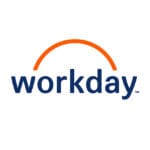Standardization as a Formula for Success


Small and medium-sized companies are facing a variety of challenges today: economic uncertainties, a shortage of skilled workers and geopolitical tensions. Inflexible on-premises systems often make it difficult to connect innovations and critical business processes. This is a major hurdle for SMEs in particular due to limited budgets and scarce resources.
Solid basis, agile systems
Before long-term goals such as sustainable growth or successful international expansion can be defined, an in-depth understanding and clear overview of the company's current status quo is absolutely crucial. This includes not only a snapshot of the financial situation, but also a detailed analysis of internal processes, market positioning, customer relationships and technological infrastructure. In order to gain this comprehensive overview, SMEs need an absolutely reliable database.
This means that information from all relevant areas of the company - from sales and marketing to production and human resources - must be systematically recorded, centralized and consistently processed. This is the only way to make well-founded decisions and identify potential bottlenecks or opportunities.
At the same time, agile systems are essential. In a constantly changing market environment, SMEs must be able to react quickly to new challenges and opportunities. Agile systems enable processes to be adapted flexibly, new strategies to be implemented quickly and continuous feedback to be used for improvements. This applies to both the IT infrastructure and organizational processes.
Without real-time data, many companies find it difficult to keep pace with change and remain competitive. Companies that are focused on growth and optimally prepared for change therefore rely on a standardized and flexible back office solution. A solid database and agile systems are the cornerstones for any successful future planning and the achievement of ambitious corporate goals. They enable small and medium-sized companies not only to react to changes, but also to actively shape them and secure a sustainable competitive advantage.
A rapid deployment process is crucial for SMEs. Workday Go is a pre-configured solution designed specifically for mid-market organizations. It enables the integration of financial and HR transactions, data from third party and legacy systems, budgets, plans and industry benchmarks in a single system. This provides a flexible, rapidly scalable and future-proof solution that avoids lengthy evaluation and implementation processes and ensures a rapid return on investment.
Focus on core processes
The focus is on standardization and the core functionalities in order to build iteratively from there. Workday offers over 500 predefined processes with best practices that are scalable and flexible and can be adapted on the fly without extensive IT involvement. The proven deployment methodology enables organizations to implement Workday within six to eight weeks on average. The deployment is tailored to the core functions of the platform and can be extended with add-ons or integrations as the company develops. A fixed schedule ensures transparency and predictable results, minimizes obstacles and guarantees a timely go-live.







